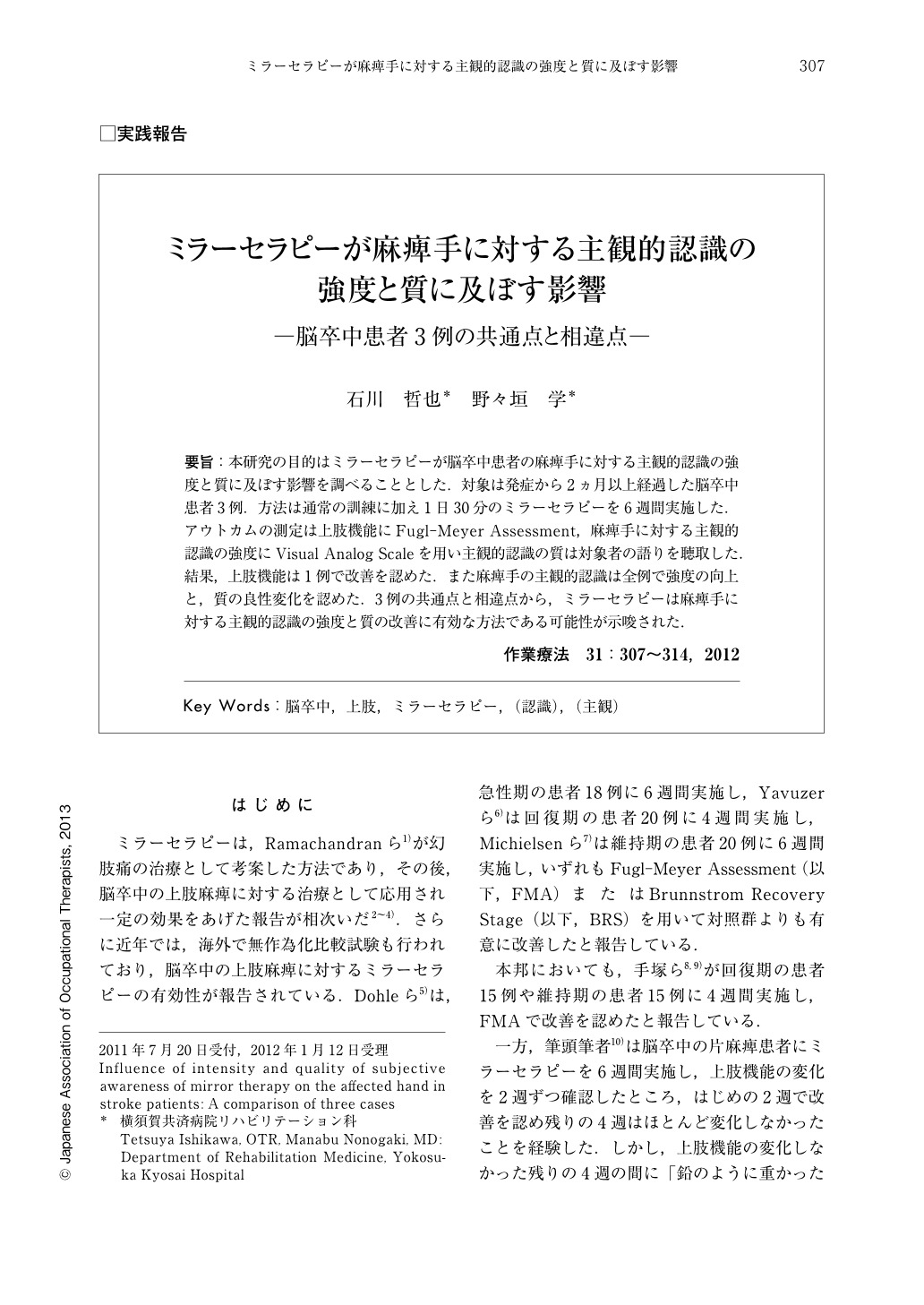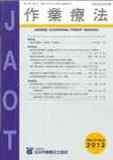Japanese
English
- 販売していません
- Abstract 文献概要
- 1ページ目 Look Inside
- 参考文献 Reference
- サイト内被引用 Cited by
要旨:本研究の目的はミラーセラピーが脳卒中患者の麻痺手に対する主観的認識の強度と質に及ぼす影響を調べることとした.対象は発症から2ヵ月以上経過した脳卒中患者3例.方法は通常の訓練に加え1日30分のミラーセラピーを6週間実施した.アウトカムの測定は上肢機能にFugl-Meyer Assessment,麻痺手に対する主観的認識の強度にVisual Analog Scaleを用い主観的認識の質は対象者の語りを聴取した.結果,上肢機能は1例で改善を認めた.また麻痺手の主観的認識は全例で強度の向上と,質の良性変化を認めた.3例の共通点と相違点から,ミラーセラピーは麻痺手に対する主観的認識の強度と質の改善に有効な方法である可能性が示唆された.
The purpose of this study was to investigate the influence of intensity and quality of subjective awareness in mirror therapy on the affected hand in stroke patients. Participating subjects were 3 patients who suffered a stroke more than 2 months previously. Each subject participated in standard occupational therapy and mirror therapy for 6 weeks, 30 minutes per day. The Fugl-Meyer Assessment was used to assess upper limb function, and the Visual Analog Scale was used to measure the intensity of subjective awareness of the affected hand. Only one case showed improved upper limb function. All cases indicated an increase in intensity of subjective awareness of the affected hand, and the quality increased as well. A comparison of the results indicates that mirror therapy may be an effective intervention for improving intensity and quality of subjective awareness of the affected hand in stroke patients.

Copyright © 2012, Japanese Association of Occupational Therapists. All rights reserved.


